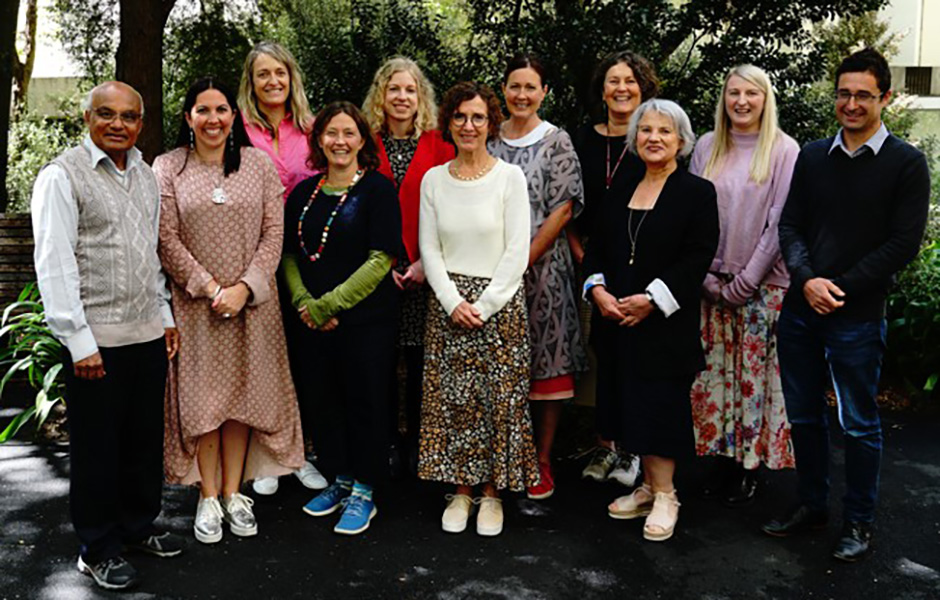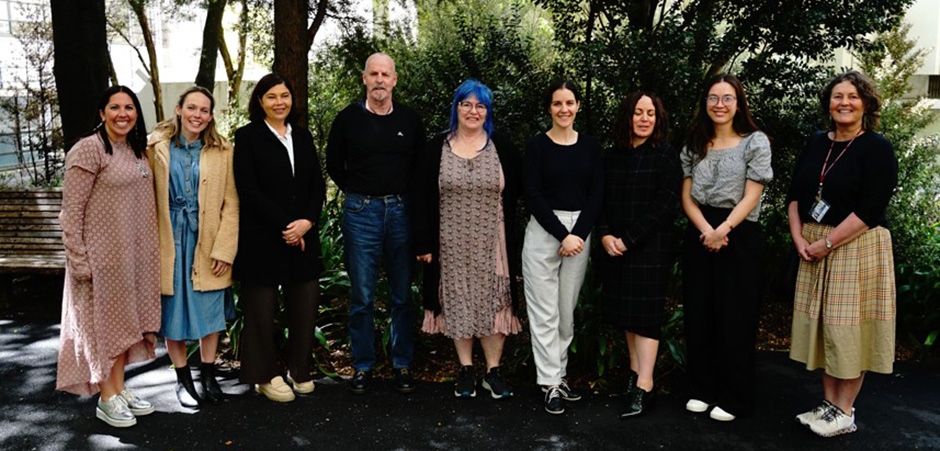Study overview
Hinapōuri ki Hīnātore: From the darkness to the light
From the darkness to the light of a new dawn / era in mental health services.
The aim of the Hinapōuri ki Hīnātore study is to understand people’s experiences of ‘joined up’ care within Health New Zealand | Te Whatu Ora – Southern mental health and addiction services.
‘Joined up’ or integrated care is when a mental health team is appropriately connected with other professionals or services (e.g., other mental health teams, a service users’ General Practitioner (GP), or Work and Income) and when service users/tāngata whaiora are placed at the centre of their care.
The study has four main components:
- Service user/tāngata whaiora survey
- Staff survey
- Service Case Studies
- Kaupapa Māori Study
It is intended that study findings will:
- Address an important knowledge gap in Aotearoa me Te Waipounamu New Zealand concerning service users/tāngata whaiora and staff perspectives of ‘joined up’ care
- Contribute to improving health outcomes and services for service users/tāngata whaiora, including specifically for Māori service users/tāngata whaiora.
Service user/tāngata whaiora survey
In mid-2024, we will invite a group of people (randomly) aged 18 years or over who are receiving care from Te Whatu Ora – Southern specialist mental health and addiction services to take part in our service user/tāngata whaiora survey.
These people will be invited to complete a hard-copy or online questionnaire. Questions will ask about the participant (e.g. their age and ethnicity), their experiences of mental health and addiction services, and their general health. The questionnaire will take about 20 minutes to complete, and participants are encouraged to complete it with a whānau member or friend if they wish.
Learning about service users/tāngata whaiora experiences of mental health and addiction services is important to ensure that services are 'people-centred'.
Staff survey
In mid-2024, we will invite staff employed in Te Whatu Ora – Southern specialist mental health and addiction services to take part in our staff survey.
All staff, including administrators, nurses, doctors, psychologists, allied health and managers will be invited to complete an online questionnaire. The online questionnaire will include questions about staff (e.g. their sociodemographic characteristics, main / usual team, role), their perceptions of integrated (‘joined up’) care, work environment, overall perceptions of quality of care, and their general health. The questionnaire will take about 20 minutes to complete.
Gathering staff's perspectives is critical to understanding integrated or 'joined up' care. Staff are immersed in the service and are well place to know when services are integrated, or not.
Service case studies
Building on Hinapōuri ki Hīnātore, this study aims to understand how, in practice, people-centred ‘joined up’ care is delivered within Te Whatu Ora – Southern specialist mental health and addiction services, including for Māori.
The project will involve in-depth case studies with up to eight teams/services that have been identified as having ‘joined up’ care strengths. Each in-depth case site visit, data will be collected using a variety of approaches, including interviews with staff, interviews with service users/tāngata whaiora, and debrief hui.
It is hoped that by identifying teams where ‘joined up’ care is working well, that we will be able share this knowledge with other mental health and addiction services (locally and nationally), and ultimately contribute to improving outcomes for service users/tāngata whaiora and their whānau.
Research team
Our research team (co-led by Professor Sarah Derrett and Professor Emma Wyeth) includes researchers from the University of Otago and staff from Te Whatu Ora – Southern. Our named investigators (pictured below) have strengths in a number of areas, including health services research, hauora Māori, clinical, managerial, research methods (e.g., Kaupapa Māori, biostatistics, health economics), lived experience, and knowledge translation.
- Research Associate Professor Ruth Cunnigham
- Adell Cox
- Professor Sarah Derrett
- Brooke Craik
- Mel Green
- Professor Cameron Lacey (Te Ātiawa)
- Dr Brett Maclennan (Taranaki)
- Dr Karyn Maclennan (Taranaki)
- Vicky Nelson (Te Ātiawa, Ngāti Ruanui, Taranaki)
- Dr Helen Owen
- Johnnie Potiki (Kāi Tahu, Kāti Māmoe, Waitaha)
- Dr Ari Samaranayaka
- Associate Professor Trudy Sullivan
- Professor Emma Wyeth (Kāi Tahu, Te Ātiawa)

From left to right: Dr Ari Samaranayaka, Professor Emma Wyeth (Kāi Tahu, Te Ātiawa), Mel Green, Research Associate Professor Ruth Cunnigham, Dr Helen Owen, Associate Professor Trudy Sullivan, Dr Karyn Maclennan (Taranaki), Professor Sarah Derrett, Adell Cox, Brooke Craik, Dr Brett Maclennan (Taranaki) Absent: Professor Cameron Lacey (Te Ātiawa), Vicky Nelson (Te Ātiawa, Ngāti Ruanui, Taranaki), Johnnie Potiki (Kāi Tahu, Kāti Māmoe, Waitaha)
Advisory Team
In addition to our above-named investigators, we also have a team of expert advisors, including people with lived experience, Māori, and national and international researchers. Our expert advisory team (pictured below with our two study leads) provide guidance and support to the overall direction of the study, help ensure relevance and connection to service users/tāngata whaiora and help with the interpretation and sharing of study findings.
- Professor Emma Wyeth (study co-lead)
- Ana Bogdanovic
- Martin Burke
- Professor Sarah Derrett (study co-lead)
- Mihaela Erdelyi
- Katie Gunter
- Dr Tracy Haitana (Te Āti Haunui-a-Pāpārangi, Ngāti Tuwharetoa),
- Toni Huls
- Hannah King
- Professor Te Kani Kingi (Ngāti Pūkeko, Ngāti Awa, Ngāi Tai)
- Dr Helen Lockett (Kāi Tahu, Kāti Māmoe, Waitaha)
- Dr Amy Richardson
- Matua Johnny Siaosi
- Emma Wood

From left to right: Professor Emma Wyeth (study co-lead), Dr Amy Richardson, Mihaela Erdelyi, Martin Burke, Toni Huls, Ana Bogdanovic, Dr Tracy Haitana (Te Āti Haunui-a-Pāpārangi, Ngāti Tuwharetoa), Hannah King, Professor Sarah Derrett (study co-lead) Absent: Dr Helen Lockett, Professor Sue Crengle (Kāi Tahu, Kāti Māmoe, Waitaha), Katie Gunter, Emma Wood, Matua Johnny Siaosi, Professor Te Kani Kingi (Ngāti Pūkeko, Ngāti Awa, Ngāi Tai)
Work we have undertaken
Members of our research team have undertaken a considerable amount of work in preparation for this study. In 2022, our research team conducted a similar survey with both staff and service users/tāngata whaiora. Below are links to short introductory videos from these:
- Improving Mental Health Services Study Overview – YouTube
- Improving Mental Health Services Service User Survey (youtube.com)
- Improving Mental Health Services Study: Perspectives of those with lived experience (youtube.com)
- Improving Mental Health Services Staff Survey – YouTube
Prior to the 2022 surveys, we had:
- Conducted a scoping review to identify interventions that have been implemented nationally and internationally to integrate care for people with serious mental health and/or addiction issues
- Adapted a US measure of integrated care for an Aotearoa me Te Waipounamu New Zealand (NZ) mental health and addiction context (the Joined Up Support Tool for Staff; JUST-staff)
- Co-designed (with people with lived experience and other key stakeholders) a NZ model of People-Centred Joined Up Care
- Co-designed (with people with lived experience and other key stakeholders) a measure for assessing tāngata whai ora/service user perceptions of ‘joined up’ care (the Joined Up Support Tool; JUST)
- Tested the feasibility and acceptability of administering the JUST and JUST-Staff
Study Findings
We are committed to sharing our study findings in a variety of ways, including for service users/tāngata whaiora, whānau, health professionals, health managers, and other researchers nationally and internationally. Below is a summary of some of our study findings shared to date.
Newsletters/Fact sheets
To follow
Journal – research articles
Academic journal articles are one way for us to share study findings. Below is a list of the academic journal articles published from this study so far:
Craik, B., Derrett, S., Wyeth, E.H., Green, M., Cox, A. (2023) Staff perceptions of the quality of care delivered in a New Zealand mental health and addiction service: Findings from a qualitative study. International Journal of Mental Health Nursing, 32(4), 1072-108. doi: 10.1111/inm.13141
Richardson, A., Richards, L., Gunter, K., Cunningham, R., Hamer, H., Lockett, H., Wyeth, E., Stokes, T., Burke, M., Green, M., Cox, A., Derrett, S. (2020) A systematic scoping review of interventions to integrate physical and mental healthcare for people with serious mental illness and substance use disorders. Journal of Psychiatric Research, 128, 52-67. doi: 10.1016/j.jpsychires.2020.05.021
Richardson, A., Richards, L., Gunter, K., Derrett, S. (2019). Interventions to integrate care for people with serious mental illness and substance use disorders: a systematic scoping review protocol. BMJ Open, 9, e031122. doi: 10.1136/bmjopen-2019-031122
Funding
This study has received funding from the Health Research Council of New Zealand (HRC23/218) and previously from the Health Care Otago Charitable Trust.
Contact us
If you wish to receive further information about this study, please contact us:
